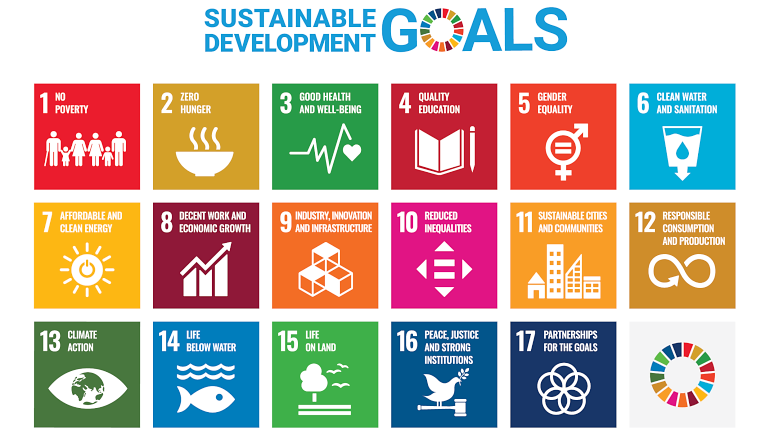Sustainable Development Goals

Our contribution to the UN Sustainable Development Goals
The 17 Sustainable Development Goals (SDGs) with 169 targets, adopted by the 191 member states of the United Nations (UN) back in 2015, are the roadmap for tackling mankind´s key challenges on the path to a more sustainable world, such as poverty, discrimination and climate change. To achieve these goals, the public sector, governments and companies must work together.
As a global healthcare group, we are doing our part. Our activities might be relevant with regards to all the 17 SDGs, we see a direct link between our core business activities and our sustainability ambition and the SDGs listed below.
For a holistic overview of our sustainability related activities incl. potential risks, please refer to our Sustainability Statement and our Sustainability Highlights Magazine 2024.
Ensure healthy lives and promote well-being for all at all ages
For more than 100 years, we have been committed to preserving life, promoting health and improving the quality of life for our patients. As an employer, it´s our priority to create a safe and healthy working environment, and to prevent occupational diseases.
Learn more:
Ensure inclusive and equitable quality education and promote lifelong learning opportunities for all
We are convinced that lifelong learning is essential to the personal success of our employees and the basis for the future viability of our company. This is why, we provide our employees with multiple learning opportunities, engage in the area of vocational trainings and dual study programs.
Learn more:
Ensure availability and sustainable management of water and sanitation for all
Water is one of earths' most precious resources. As a company we rely on access to clean water for providing high-quality and safe healthcare to people, and for the manufacturing of medical products. We focus on efficient water use and take measures to prevent water pollution.
Learn more:
Promote sustained, inclusive and sustainable economic growth, full and productive employment and decent work for all
We are committed to providing a fair and respectful work environment that promotes equal opportunities, along with safe and healthy working conditions and fair and appropriate wages. We expect our business partners to support our commitment to human rights and to take respective measures in their value chains.
Learn more:
Build resilient infrastructure, promote inclusive and sustainable industrialization and foster innovation
We bring healthcare innovation to people. As part our of our activities we create and strengthen infrastructure in the healthcare sector. With our research & development activities we aim for innovations that increase access to healthcare, enable modernization and digitalization in healthcare and improve treatment options through research, telemedicine and artificial intelligence.
Learn more:
Take urgent action to combat climate change and its impacts
Climate action is at the core of our sustainability efforts. We work towards increasing energy efficiency and make use of renewable energy sources to continuously reduce our carbon footprint.
Learn more:
Strengthen the means of implementation and revitalize the Global Partnership for Sustainable Development
Achieving the vision behind Agenda 2030 requires concerted efforts and collaboration among multiple stakeholders at local and global levels. We engage in sector-specific and cross-sector multi-stakeholder initiatives and foster collaboration in areas such as innovation and education.
Learn more:
Contact
If you have any questions about sustainability, please contact us:
sustainability@fresenius.com

